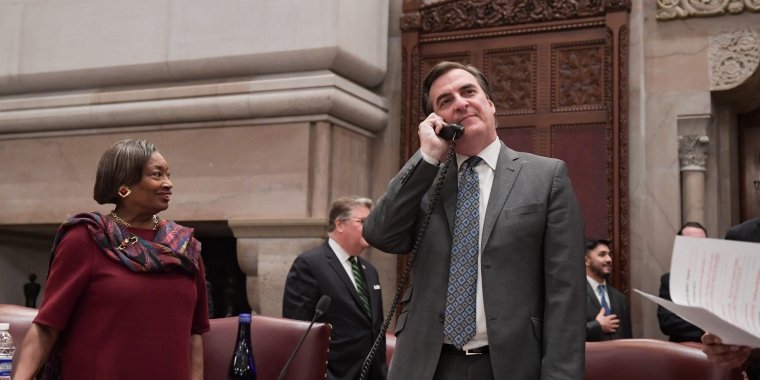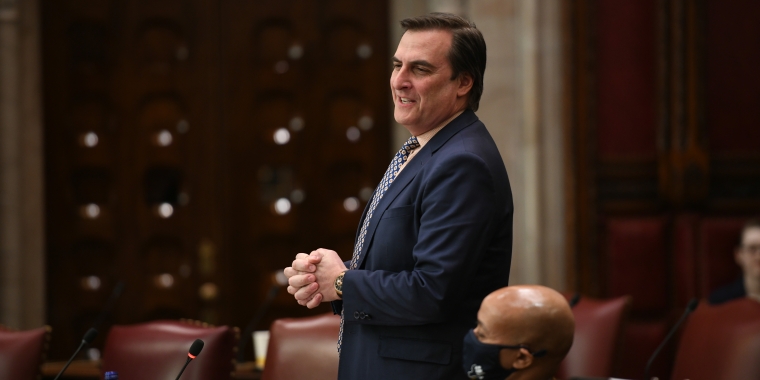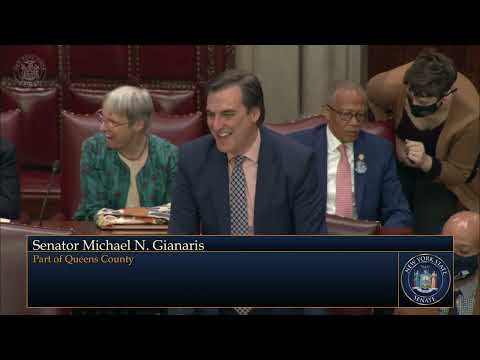
New York Times: Surviving on Hot Plates and Takeout: 73 Days Without Cooking Gas

On Thanksgiving Day, outside the Astoria Houses in Queens, a food truck offered free chicken tenders and French fries to residents. Scores of them were unable to prepare their own meals, as they had been living without cooking gas for more than 70 days.
Earlier in the fall, reports of a gas leak prompted Con Edison to shut off gas to a 48-unit building, part of this sprawling low-income development on the edge of northwestern Queens that is operated by the New York City Housing Authority. Officials soon determined that they would need to replace the building’s gas risers, a monthslong process involving procedural asbestos testing and abatement before repairs could even begin.
Still, the housing authority, known as NYCHA, claims it’s working as fast as possible to fix the issue. “They have the ability to get gas restored to buildings much faster than private owners,” said Vito Mustaciuolo, the general manager for NYCHA, who added that the pandemic has created new challenges in communication. “Typically we would have meetings in person, we would invite the tenants’ association and any resident affected/impacted by the outage.” Only a few socially distanced meetings with tenants have been possible so far, he said.
Local nonprofits like Urban Upbound, which was behind the Thanksgiving food truck and which also runs a food distribution warehouse nearby, have stepped in to help, but at a time when New Yorkers are isolating at home and cooking for both safety and economy, residents are understandably frustrated.
“I should be in my house, and I shouldn’t be outside in the cold waiting to be fed chicken tenders and fries,” said Uaiasha Perry, who lives in one of the affected apartments with her 9-year-old daughter, her mother and her brother.
“They can harass you for money, they can harass you about everything else, but when it comes to repairs, they don’t want to repair,” she said, referring to the housing authority.
Representatives of NYCHA have delivered single hot plates to the affected residents, many of whom find them time-consuming and limiting. “It’s hard to cook on a hot plate, to make a full meal for a full family,” Ms. Perry said. “Last night it took me almost three hours to make tacos. It took the meat so long to cook on the hot plate.”
Ms. Perry, who lost her job as a food and beverage supervisor at Madison Square Garden because of the pandemic, and who has been relying on unemployment payments, said she had been spending up to $400 a month on takeout. “Sometimes I don’t want to cook on a hot plate,” she said. “It’s exhausting. To spend three hours to cook something that should take 20 to 30 minutes is crazy.”
“It’s a very heavy strain,” said Claudia Coger, the tenants' association president for the Astoria Houses, where she has lived for 65 years, “especially when you’ve got a household of five and six people.”
Others have resorted to traveling far distances to cook meals for their families. Kim Elliott said that she had visited her daughter’s house in Westchester several times to use her kitchen. “I’ve got six people in my home,” she said. “They have to eat breakfast, lunch and dinner, so I’ve been traveling over there to make a meal and come back.”
Josephine Acevedo, who commutes 90 minutes from Brooklyn every day to Astoria Houses with her 5-year-old son to take care of her disabled grandmother there, is also struggling with the hot plate. “We can make mac and cheese on there, Lipton soup, ramen,” Ms. Acevedo said. “But that gets tiring after a while.”
As of Nov. 20, gas outages affected 1,412 apartments in the city’s public housing. And problems with the gas supply represent just one of many issues plaguing the 326 public housing developments and their nearly 400,000 residents. Many of the buildings have fallen into disrepair, owing to years of neglect, corruption and diminishing federal funds.
Like much of the city’s public housing, the Astoria Houses are on the margins of the city, along the East River and at the end of a cul-de-sac, where few people venture apart from residents or those trying to help them. Scaffolding wraps around several buildings in the complex with signs that read “Sandy Recovery to Resiliency,” a restoration project spearheaded after Hurricane Sandy. Beneath the optimistic heading, in smaller text, it states: “This project is set for completion in 2018.”
But this is nothing new, say residents, who are used to long waits for repairs. “NYCHA has allowed the infrastructure to deteriorate,” said Ms. Coger of the tenants’ association. “We pay the price for the neglect that has gone on.”
In July, under the leadership of its chief executive, Greg Russ, NYCHA unveiled its “blueprint for change,” which proposed several initiatives, including the establishment of a public housing preservation trust.
The report identified $45 billion in capital needs, including $18 billion to make 110,000 of the apartments meet basic housing standards. Only then could the housing authority address its structural issues, which would require years of construction. “This would be one of the largest infrastructure projects,” said Mr. Russ, who compared it to Boston’s Big Dig, a tunnel project that rerouted a major highway through the heart of the city.
“It’s a big ship to turn around, especially one that’s been going in the wrong direction for so many years,” said Bishop Mitchell Taylor, the co-founder and chief executive of Urban Upbound, who has spent most of his life in and around the Queensbridge Houses, another housing development in Queens.
Contractors began work on the gas pipeline this week, but NYCHA officials could not give a clear answer on when the gas would be turned on. After the physical work is finished, the Department of Buildings will have to complete inspections before the gas can be restored, they said.
“This is a situation that would not be tolerated in a private residential situation,” said State Senator Michael Gianaris, who represents western Queens and introduced a bill demanding that the housing authority discount rents to residents whose utilities have been disrupted. “There’s absolutely no reason it should take months on end to get gas fixed.”
But with an already strapped budget, NYCHA asserts that rent reductions are not a viable solution. “The revenue that we collect in rent goes toward our operating budget, an operating budget that has seen significant reductions,” said Mr. Mustaciuolo, of NYCHA. “Our annual budget is approximately $3 billion, of which $1 billion is generated through our rent collection.”
In the meantime, NYCHA officials will continue to offer some meals for residents affected by the gas outage.
But for Ms. Perry, the gesture is not enough. “I appreciate the attempts to help,” she said, “but I think we would be able to do better with just focusing on fixing the gas.”



